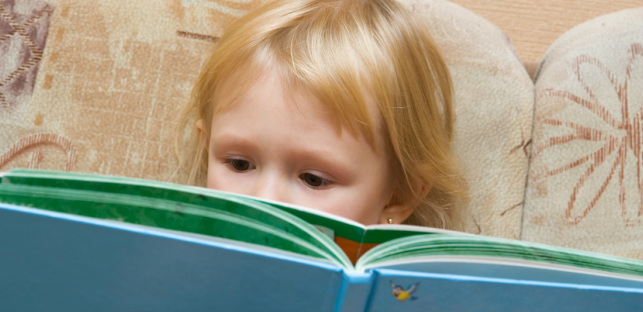|
By Elizabeth Montgomery, Pre-K Smarties
It is never too early to introduce your child to books. Although infants will be unable to follow a plot or understand a theme, infants will benefit from exposure to books. In addition to the bonding that is inevitable when you hold your baby in your lap and communicate with her, reading to your baby is valuable in the development of language skills. Long before your baby utters her first word, she is absorbing sounds that will first help contribute to the development of speech, and later reading. Books also stimulate your baby’s imagination, helping her to make sense of situations she has experienced and introducing her to new ones. Reading to your infant today promotes good reading habits tomorrow. As infants are particularly responsive to the sounds of language, the best books for babies emphasize rhythm, melody, and repetition, such as nursery rhymes and books with patterned language. Rhythm, rhyme, repetition, and familiar language sequences will captivate babies. Books for infants usually have minimal text; the words often function like labels or captions for the pictures. Infants enjoy looking at pictures of other people, especially other babies. They recognize facial features and expressions. Babies and small children love seeing familiar objects like a stuffed bear or a rubber duck, or people doing things that they have had some experience with in their daily life, such as getting dressed or taking a bath. Books are not just educational and developmental devices. Babies, like adults, are entertained by books. Parents and other caregivers find that books are a very effective way to keep babies happily occupied. Indeed, early enjoyment of books will help form a foundation for the vital role books will play in your child’s formal education. ***** We expose children to reading too late. By six years of age the ability to take in raw facts, whether auditory (spoken) or visual (written), without the slightest effort is just about gone. … It is easier to teach a five-year-old to read than it is to teach a six-year-old. It is easier at four than at five, easier at three than at four, easier at two than at three, easier at one than at two, and easiest of all below one. The superb truth is that babies take in raw facts such as written and spoken words at a rate that no adult could come close to matching. “Why Teach Your Baby to Read?” by Glenn Doman, Founder of The Institutes for the Achievement of Human Potential (Excerpts)
0 Comments
Leave a Reply. |
Categories
All
Archives
March 2024
LinksFree Children's Stories |


 RSS Feed
RSS Feed
